Once By His Side, Gallego Gets Pushback From LGBTQ+ Organizations
The progressive Democrat has made a point to gather endorsements from local LGBTQ+ organizations, almost all of which have now condemned his remarks on trans youth.
In Arizona, one person can stop a bill from moving forward in the Legislature, and the public never gets a chance to have their voice heard.

During this year’s legislative session, Democrats introduced 15 bills aimed at expanding—or at the very least securing—the rights of queer people in Arizona. The various legislation sought to protect same-sex marriage, ensure workplace protections comparable to those of their peers, and modernize laws that portray LGBTQ+ people as deviants.
None of those bills are currently being considered as the session nears its end. In fact, most were dead on arrival—not because they failed in a vote, but because Republican leadership refused to let them move forward.
Arizona is home to more than a quarter-million LGBTQ+ people, according to the most recent survey data from the Williams Institute at UCLA. Yet for multiple legislative sessions, bills aimed at securing equal protections under state law have been blocked before ever reaching public debate.
That’s because Arizona’s legislative process allows a handful of lawmakers to shut down bills without a vote, without debate, and without explanation.
There are a few ways that bills can become laws. But in the most elementary sense, here is how the process is supposed to work:
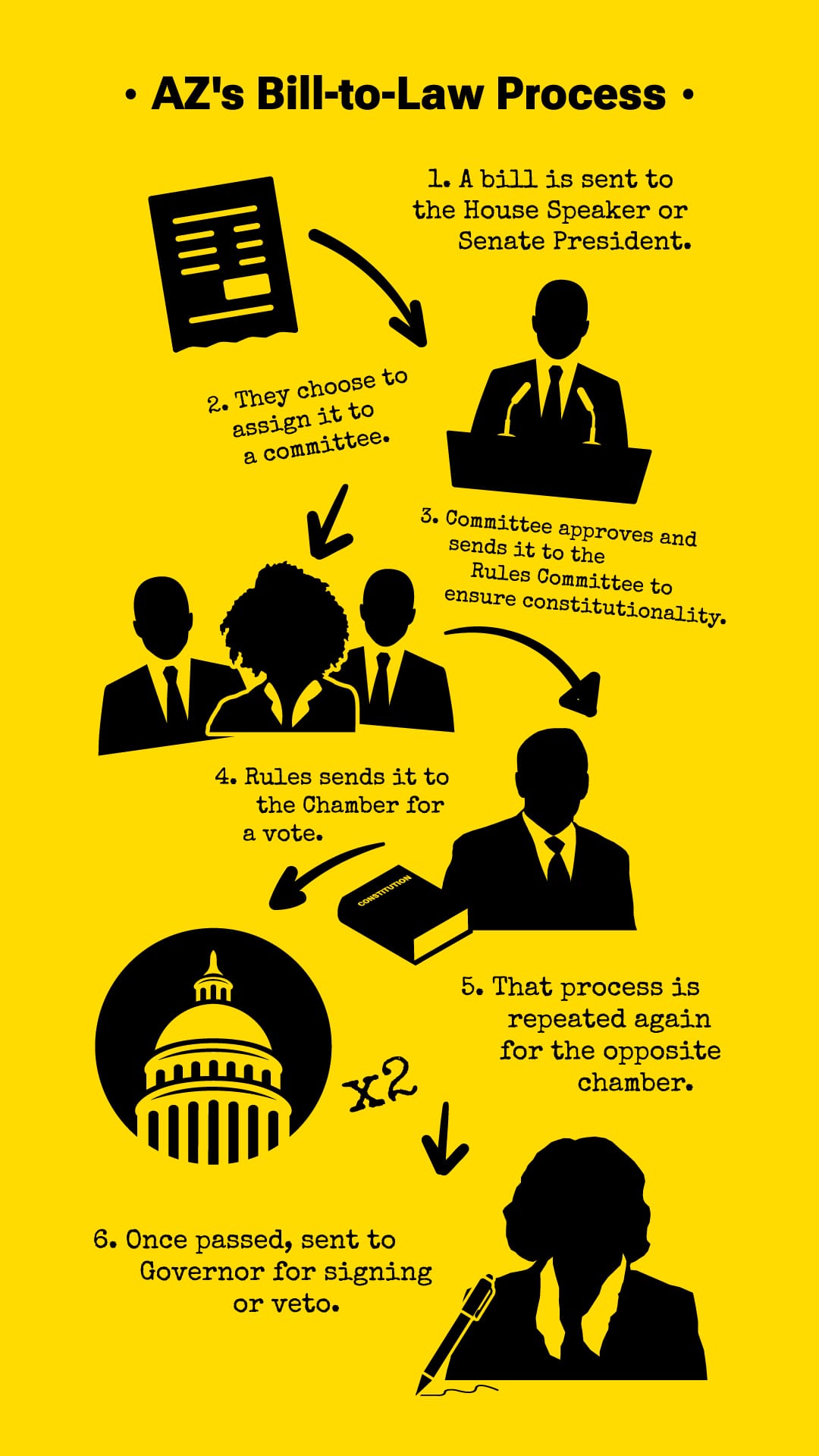

But at any step in this process, current Republican leaders have the power to kill a bill—by simply ignoring it.
For example, in the second step, when the chamber’s leader—chosen by the majority party—decides which bills get assigned to a committee, they can simply choose not to assign a bill they don’t want debated.
Even if the leader does assigned the bill to a committee, the chair—handpicked by the chamber leader—can bury it by refusing to put it on the schedule.
If the legislation somehow makes it past those two hurdles, the Rules Committee chair—also handpicked by the chamber leader—can stop it dead by declining to review it.
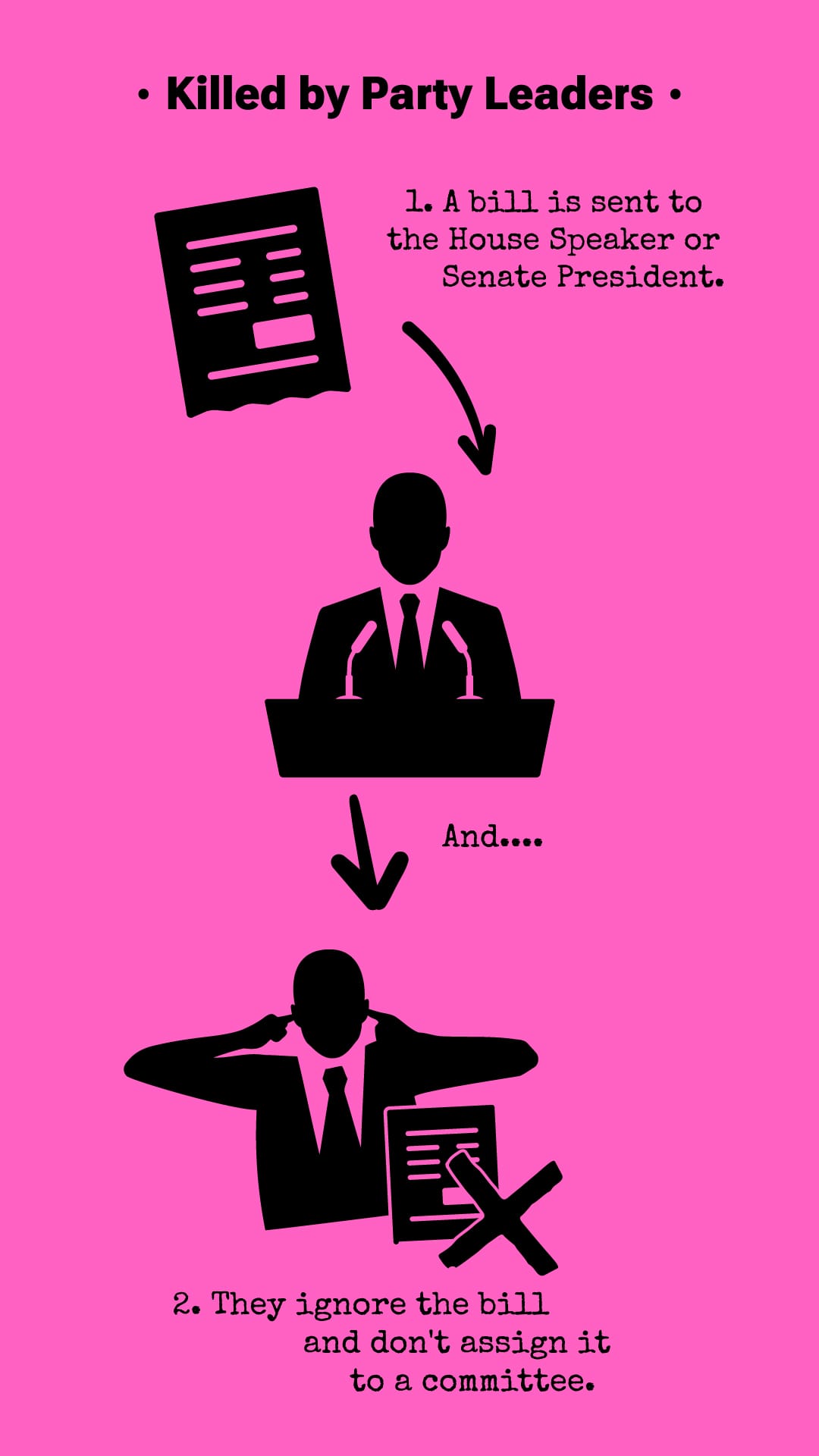
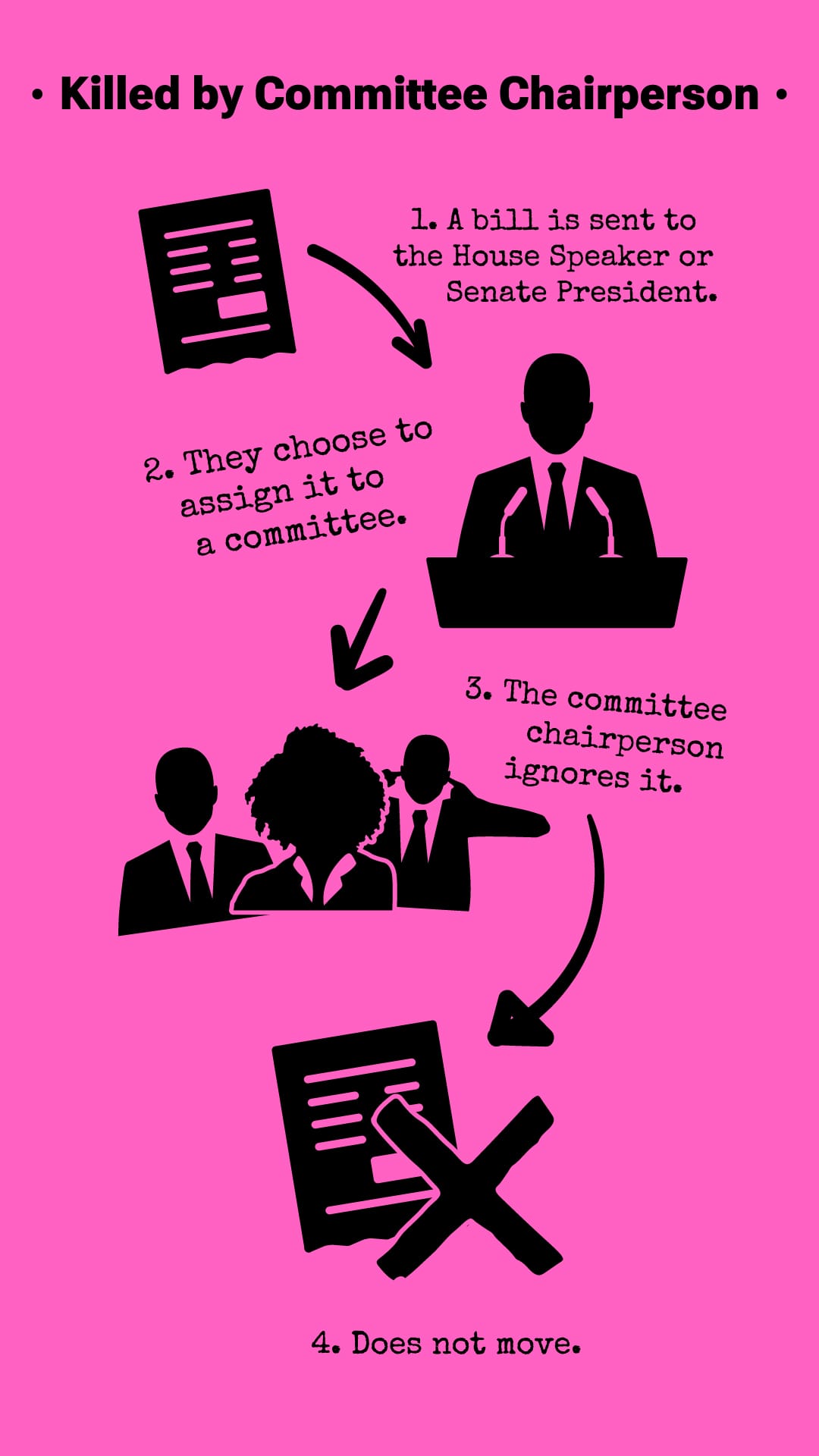
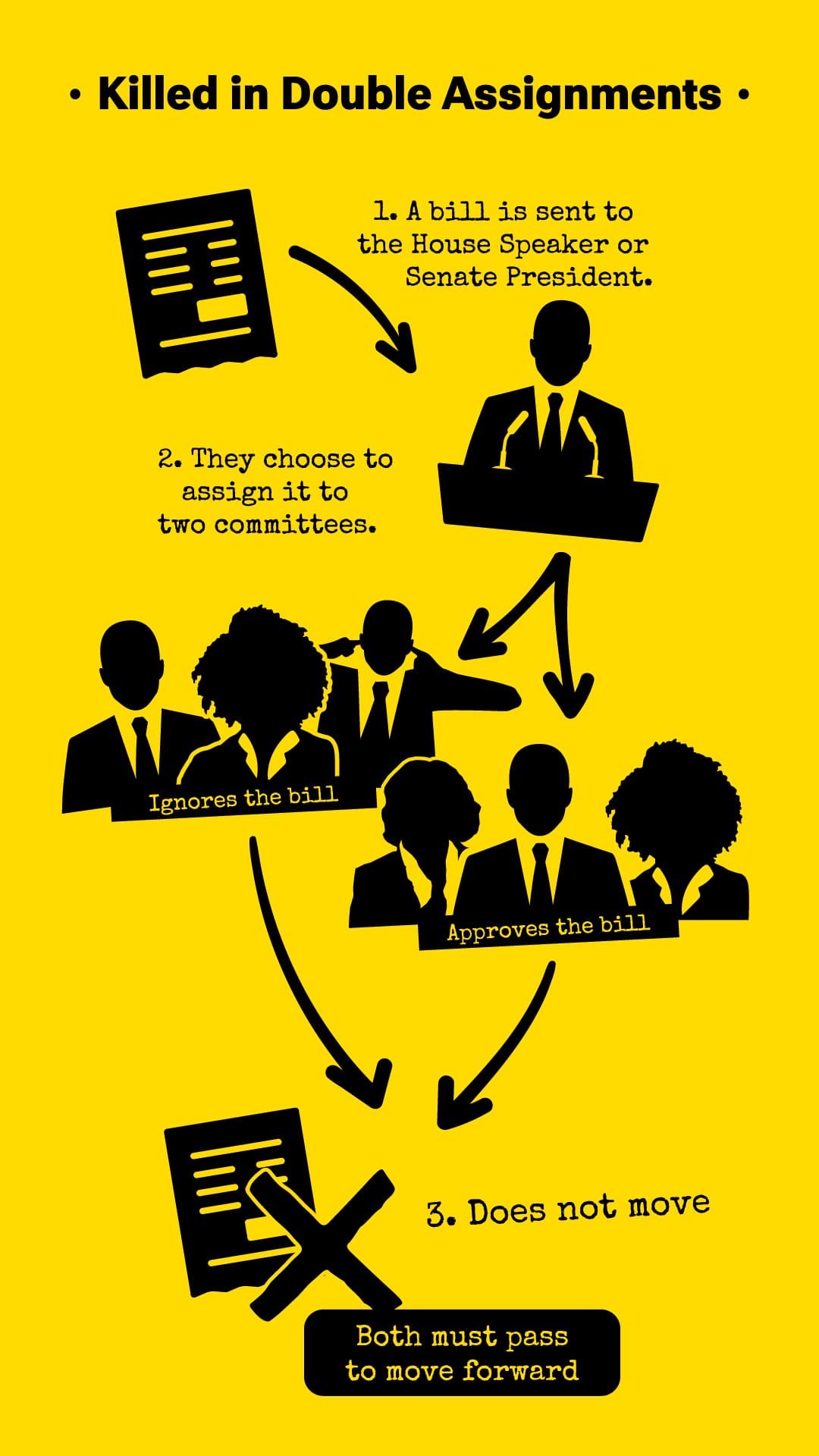
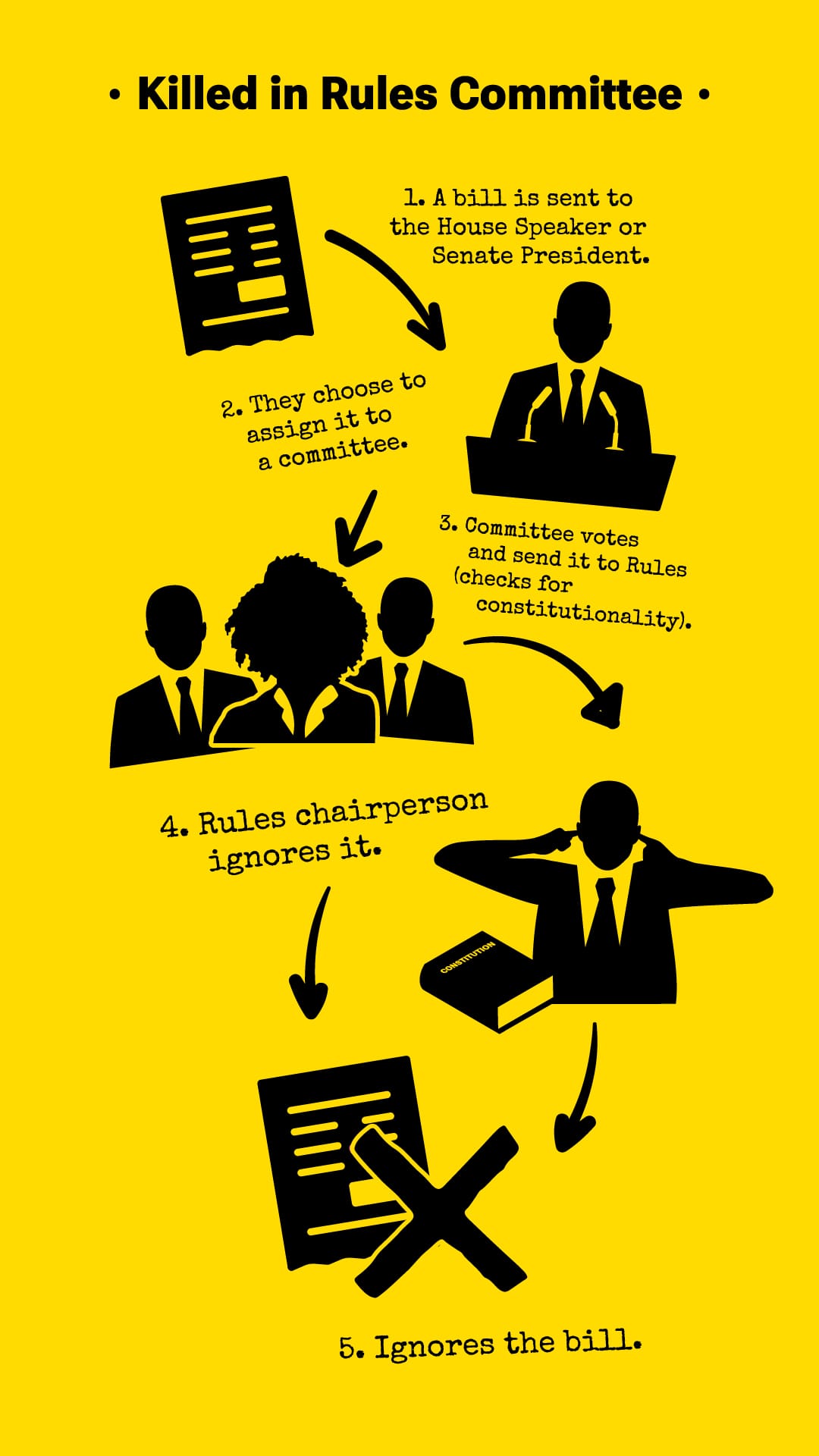
The result? LGBTQ+ rights bills never even get a chance. The process allows Republican leadership to block protections for queer Arizonans without ever having to publicly defend their actions.
Advocates and some lawmakers say this raises a fundamental question: If elected officials representing hundreds of thousands of Arizonans can’t even bring their bills up for public debate, is Arizona’s legislative process truly democratic?
“The system gives the majority an insane amount of power,” said Melinda Iyer, co-founder and policy director of Civic Engagement Beyond Voting, a statewide nonpartisan group that aims to get people more involved in local politics. “The speaker or Senate president—one single person—unilaterally decides whether a bill can be heard. And if they decide that they want a bill to be heard, they decide who to give that bill to.”
For example, Senate President Warren Petersen assigned a bill that would have enshrined same-sex marriage as a constitutional right in Arizona to the Senate Judiciary Committee. The bill aimed to safeguard marriage equality in case the U.S. Supreme Court overturns its 2015 ruling legalizing it. But Sen. Wendy Rogers (R-Flagstaff), who has made conservative culture wars a significant part of her brand, chairs that committee and never allowed the bill to be heard, debated, or voted on.

In the House of Representatives, Speaker Steve Montenegro simply didn’t assign a similar bill to a committee, effectively killing it.
Another way to kill a bill? Assigning it to two committees and requiring it to pass both to advance.
This process isn’t unique to LGBTQ+-related bills. When Chispa Arizona, an environmental group, lobbied for legislation to plant more trees in urban areas, members were shocked when it never even got a hearing.
“It was about creating something for children,” said Nuvia Enriquez, communications director for Chispa Arizona. “To have legislators not even give it an opportunity to be discussed is definitely frustrating.”
Enriquez said the group has had to rely on direct action, such as organizing advocacy days where community members meet with lawmakers to push for hearings.
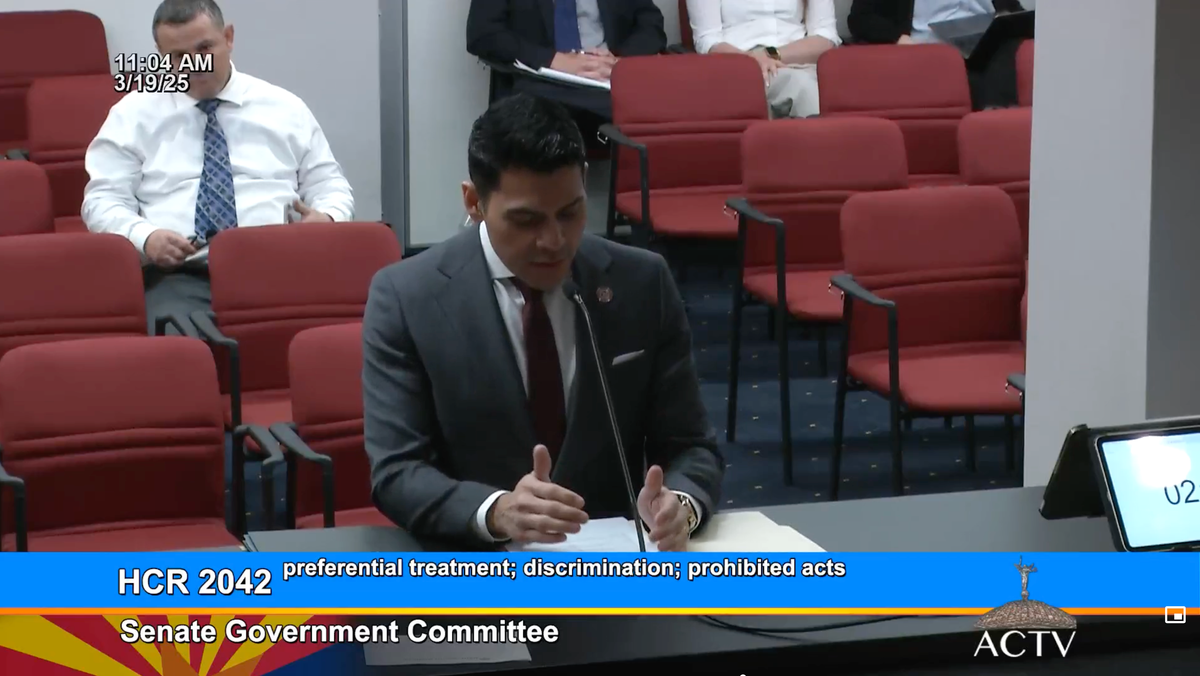
Inside the Capitol, lawmakers can also attempt to move stalled bills forward through amendments, though success is rare. Bills can be rewritten through “strike everything” amendments, replacing the original text with entirely new language. If a bill advances far enough, a lawmaker can propose striking the text and substituting a different measure, which requires debate and a vote.
Rep. Betty Villegas (D-Tucson) attempted that strategy earlier this session with an anti-LGBTQ+ bill but couldn’t get the amendment through committee.
The problem, according to House Minority Leader Rep. Oscar De Los Santos (D-Phoenix), is that the legislative process overwhelmingly benefits the majority party—at the expense of the millions of Arizonans who didn’t vote for them.
“If people found out how this place works, they’d be fucking in horror, and pissed,” he said. “We represent millions of human beings in the state and are down by a hair, and they have all the power. This is completely not how representative government is supposed to work.”
At LOOKOUT, we believe in the power of community-supported journalism. You're at the heart of that community, and your support helps us deliver the news and information the LGBTQ+ community needs to thrive.
LOOKOUT Publications (EIN: 92-3129757) is a federally recognized nonprofit news outlet.
All mailed inquiries can be sent to 221 E. Indianola Ave, Phoenix, AZ 85012.